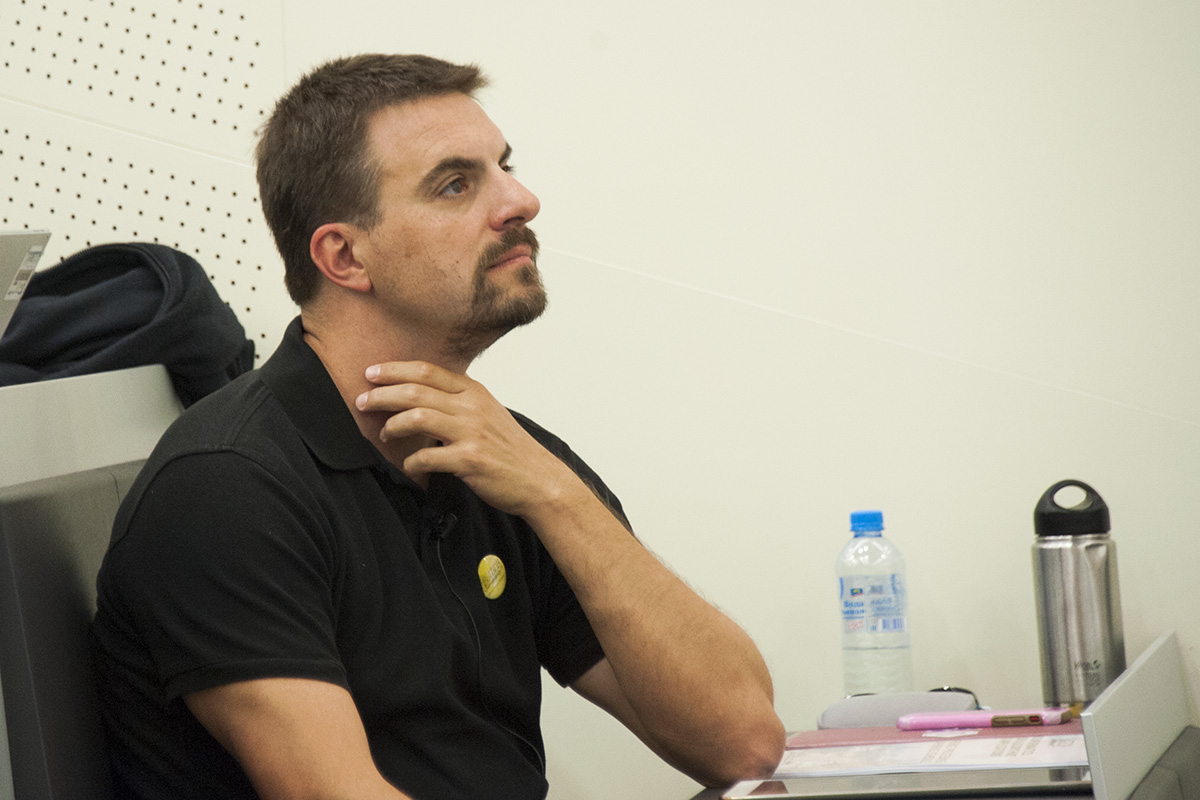St Petersburg University has brought together experts in bioinformatics for the third time

St Petersburg University has hosted the third international conference Bioinformatics: from Algorithms to Applications (BiATA-2019). Leading experts from different countries of the world came to take part in it.
The aim of the conference is to gather on the same platform the people who create software products for working with modern biological data and the people who need them. This year, more than 100 experts in bioinformatics and algorithmic biology met at its venue.
This time BiATA was held as an associated conference of the VII Congress of the Vavilov Society of Geneticists and Breeders.
For us, the invitation from Igor Tikhonovich, the Dean of the Faculty of Biology of St Petersburg University and a member of the Russian Academy of Sciences, to join the Vavilov Society of Geneticists and Breeders is a recognition of the high level of our conference, although it is only two years old.
Alla Lapidus, Professor of the Department of Cytology and Histology at St Petersburg University, Chairman of the Programme Committee of the Conference, Associate Director of the Center for Algorithmic Biotechnology at the Institute of Translational Biomedicine of St Petersburg University
An indisputable confirmation of the high academic level of the conference is the fact that leading experts take part in it. Rob Knight is among them. He is a microbiologist, a professor of the University of California at San Diego, a co-founder of the Earth Microbiome project. ‘He is the world star of the academic world. He is booked for scientific events for three years in advance. However, Rob Knight arrives at BiATA for the second consecutive year. I am proud of it. Such a famous scientist would not go for the second time to a place which does not interest him. Four scientists who have not managed to come now have already agreed to participate in the conference next year, in 2020. We consider this a recognition,’ says Alla Lapidus.
This year, a lot of attention at the conference was paid to the promotion of bioinformatics in agriculture. In this regard, most of the reports are devoted to the issues of metagenomics, which helps to study the soil, plant, food and human microbiomes.
Evgeny Andronov from the All-Russian Research Institute of Agricultural Microbiology informed the audience how to apply the data on soil microbiome in practice. In particular, he spoke about how to use ‘natural engineering’, which provides high efficiency of interaction between plants and microorganisms.
One of the reports of the section on genome assembly algorithms was a presentation by Alekxander Shlemov from the Center for Algorithmic Biology of St Petersburg University on the new PathRacer tool. When sequencing the genome, the DNA molecule is cut into many small segments, which then need to be collected back. The genome assembly is a complex process that never happens without errors. According to Alla Lapidus, the new software product PathRacer developed by university bioinformatics experts offers a new approach to improve the quality of assembly and annotation of genomes
As a rule, while sequencing the genome is cut into very small parts, but there are technologies that make it possible to work with larger fragments. This results in the reduction of the number of errors in the assembly of the genome. However, when working with large sections of the genome, other mathematical solutions are required. SPAligner (Saint Petersburg Aligner), which Dmitry Antipov from the Center for Algorithmic Biology of St Petersburg University spoke about, is another new tool that makes it possible to make the genome assembly more accurate, but this tool is designed to work with long sequences.
Pilar Francino, Head of Genomics and Healthcare FISABIO (Valencia Public Health Foundation for the Promotion of Health and Biomedical Research), addressed a very interesting topic in her speech. She described how microbiota affects the course of pregnancy and what happens to the microflora in the first months of a child's life. It is known that the microbiota has a tremendous impact on health throughout life. The more we know about how it is formed and what happens at the earliest stages of its development, the better we will understand what leads to some pathological conditions associated with disorders in the composition of the microflora.

